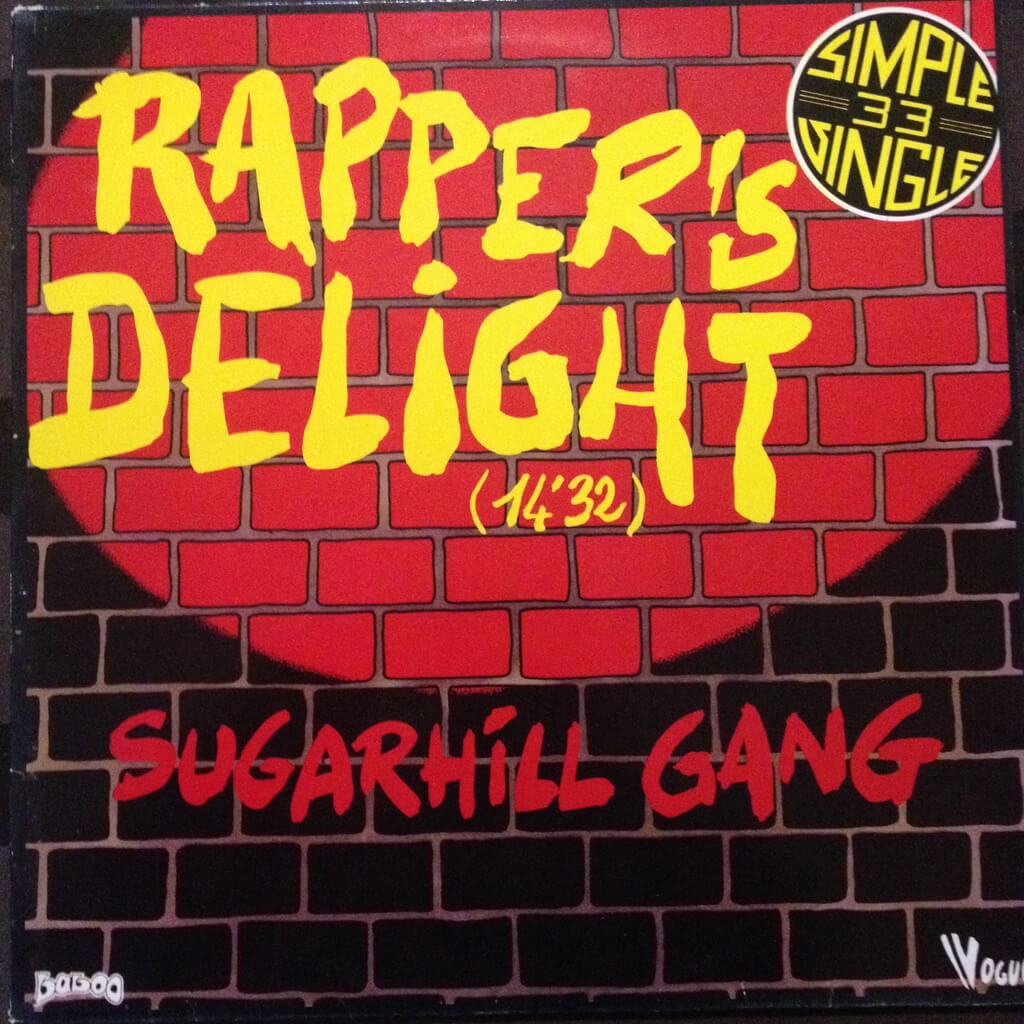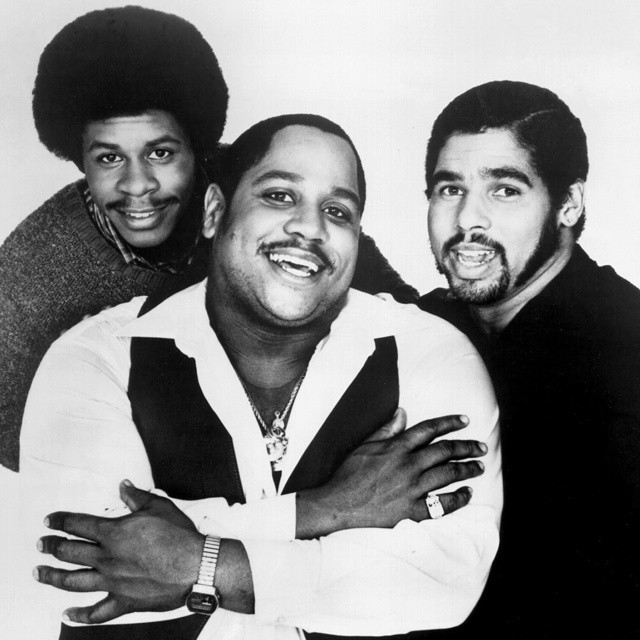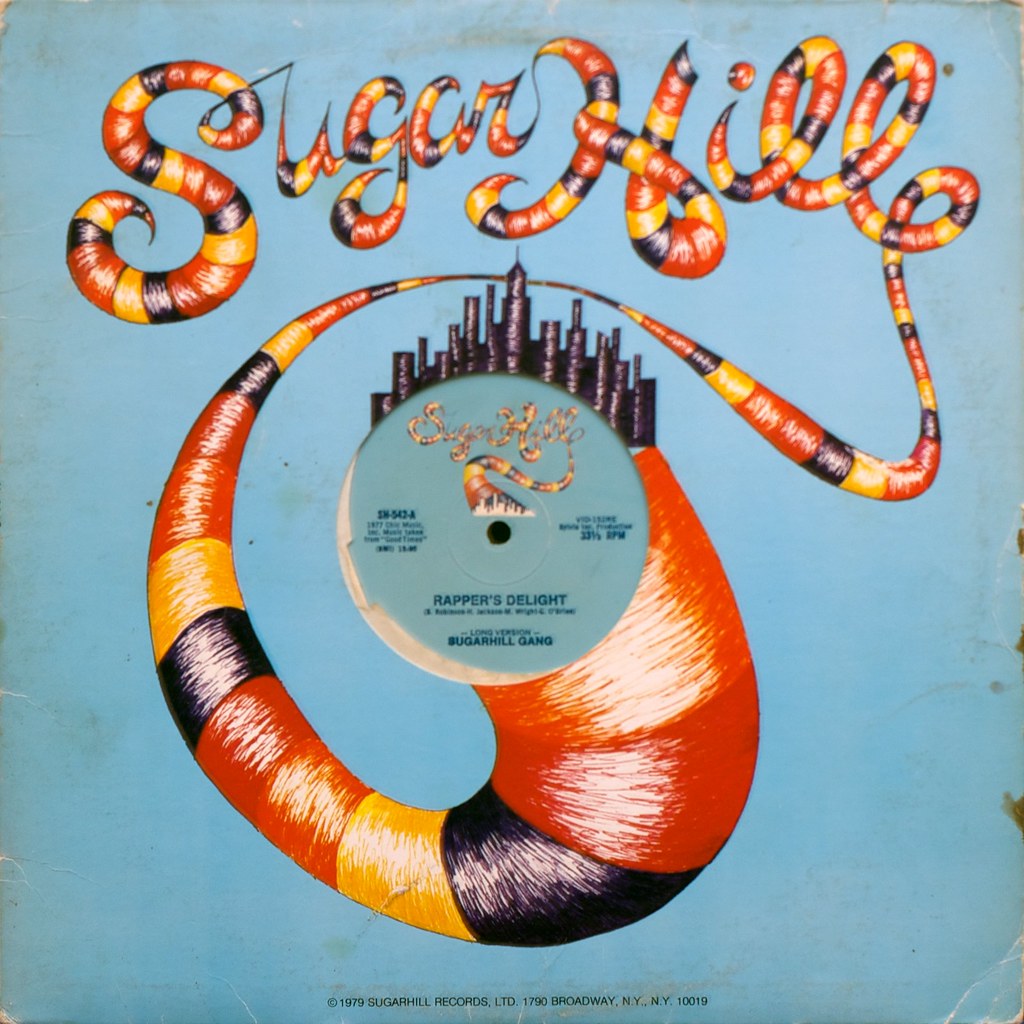
In 1979, the Sugarhill Gang, hailing from New Jersey, released “Rapper’s Delight,” a track that marked a turning point in music history. Amidst the disco era, this fifteen-minute epic sampled Chic’s “Good Times” and showcased rhyming prowess, propelling Hip Hop into the mainstream. However, controversies surrounded the song, notably the alleged use of ghostwriters. Big Bank Hank’s verse, later revealed to be written by Grandmaster Caz from the Cold Crush Brothers, sparked debates on authenticity in a genre valuing personal expression. The dynamics of this controversy mirrored the broader music industry’s challenges, highlighting the exploitation of artists and the commercialization of a genre rooted in authenticity.
“Rapper’s Delight” faced criticism for its commercialized approach, accused of diluting Hip Hop’s essence by catering to a mainstream audience with a disco-influenced beat. This tension between commercial success and artistic integrity became a recurring theme in Hip Hop’s evolution. Despite the controversies, “Rapper’s Delight” made history, influencing subsequent Hip Hop generations and laying the foundation for the genre’s global dominance. Its infectious energy and catchy rhymes transcended racial and cultural boundaries, becoming a global phenomenon.
The controversy surrounding the Sugarhill Gang and “Rapper’s Delight” also raised questions about cultural appropriation, as a predominantly African-American art form entered the mainstream through artists not originally part of the Bronx Hip Hop scene. The debates reflected broader discussions on power, privilege, and representation, emphasizing the need for nuanced conversations about cultural exchange.
When Hip Hop was still a small Bronx niche, Big Bank Hank, a future Sugarhill Gang member, worked as a doorman for a Bronx nightclub. Hank’s introduction to Grandmaster Caz, then known as Casanova Fly, marked the initial step toward the creation of “Rapper’s Delight” and the national recognition of Hip Hop as an art form. Working at Crispy Crust, a pizza shop, Hank rapped along to homemade Hip Hop tapes, catching the attention of Sylvia Robinson, founder of the Sugarhill Records label. Robinson, seeking new talent, offered Hank an audition outside the shop.
The controversy surrounding “Rapper’s Delight” took a significant turn when Hank, during the audition, passed off Grandmaster Caz’s work as his own. This audacious move secured Hank a role as a rapper for The Sugarhill Gang, alongside Wonder Mike and Master Gee. The trio, recruited straight from the streets, recorded the song in a single take the following Monday. The lyrics recited by Big Bank Hank, especially in the introduction, revealed the use of Casanova Fly, Caz’s moniker before adopting the name Grandmaster Caz.
Despite the success of “Rapper’s Delight,” Big Bank Hank’s tour with The Sugarhill Gang led to years of separation from Caz. The track’s musical foundation stemmed from an unoriginal source, Chic’s disco song “Good Times.” This practice of reworking disco beats, while common, contributed to the controversy surrounding early Hip Hop compositions. While radio listeners embraced “Rapper’s Delight,” the original Hip Hop originators in the Bronx were less thrilled. Many felt overlooked as the song achieved commercial success, triggering resentment toward the Sugarhill Gang’s triumph in a genre they believed the group did not earnestly practice.
The song’s lyrical focus, centered on having fun and boasting about lifestyles, reflected the early Hip Hop ethos of entertaining club-goers. The original 15-minute version, eventually shortened for radio play, marked a significant shift as songs transitioned from extended club performances to concise radio-friendly formats. The commercial success of “Rapper’s Delight” undeniably played a crucial role in Hip Hop’s ascent to dominance in popular culture. However, the controversies surrounding ghostwriting, unauthorized use of lyrics, and allegations of cultural appropriation became enduring chapters in the genre’s history.
In retrospect, “Rapper’s Delight” stands as a double-edged sword for Hip Hop. On one hand, it played a pivotal role in propelling the genre into the mainstream, laying the groundwork for its global influence. On the other hand, it underscored the challenges of maintaining authenticity in the face of commercial success, with allegations of ghostwriting and unauthorized use of lyrics raising questions about artistic integrity.
The controversies surrounding the Sugarhill Gang and “Rapper’s Delight” remain integral to understanding Hip Hop’s early struggles with identity, authenticity, and commercialization. While the song’s enduring legacy attests to its impact on shaping global perceptions of Hip Hop, the unresolved tensions within the community serve as a reminder of the genre’s complex journey from Bronx streets to mainstream success. In navigating these challenges, artists continue to grapple with the delicate balance between preserving the roots of Hip Hop and embracing its evolution into a worldwide cultural phenomenon.
“Rapper’s Delight” will forever be an essential landmark in Hip Hop’s journey. Its impact, both positive and contentious, shaped the genre’s trajectory, reflecting the broader struggles of authenticity and representation within the music industry. As Hip Hop continues to evolve, artists navigate the legacy of “Rapper’s Delight,” emphasizing the delicate balance between preserving the roots of the genre and embracing its ever-changing cultural significance. The unresolved tensions and controversies embedded in this iconic track serve as a testament to the complex, multifaceted nature of Hip Hop’s ongoing narrative.

